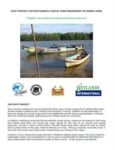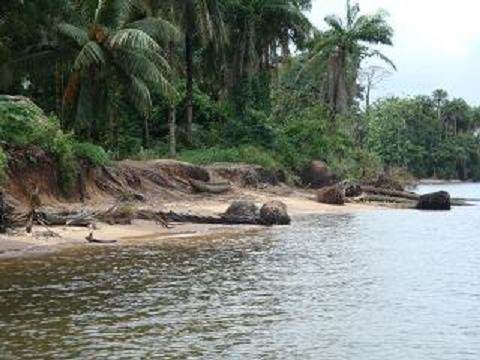Sierra Leone’s coastal and marine biodiversity faces many threats ranging from habitat destruction, climate change (coastal erosion, flooding and droughts), hunting, collection of sea turtle eggs, to land use change as a result of agriculture and settlement and fish stock overexploitation. However, there are initiatives already addressing some of these issues for some time.

Final PRCM Brochuress Sierra Leone
downloadIn addition overfishing using bad fishing methods, pirate fishing, mangrove harvesting for fuel wood and habitat destruction are among the major causes for the loss of our marine and coastal resources. Sources in Sierra Leone confirm that fish stocks have been reduced to such an extent that at certain times of the year, national demand is no met. Fishing companies insist that piracy in the north has forced many boats south, exacerbating over-fishing in this region.

However a more robust pilot project has been initiated to address these issues. The pilot project for sustainable coastal zone management in Sierra Leone is implemented by Wetlands International in close collaboration with Conservation Society of Sierra Leone. In this project, a partnership between PRCM, Wetlands International and Sierra Leonean partners has already been launched, and this initiative has the support of different institutions in the country like the Ministry of Fisheries and Marine Resources, Forestry Division and the Institute of Marine Biology and Oceanography.
The project will focus on the establishment of Marine Protected Areas and demonstration of small scale pilot activities, supported by communications and capacity building components. The lessons learned and best practices in at least one MPA will be promoted around the country for the improvement of coastal and marine resources management. The project also will engage local and national stakeholders, through their participation, capacity building improved knowledge and biodiversity conservation issues.